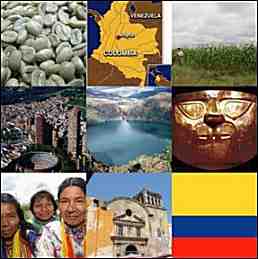
Peru Is In, Now Where's Colombia?
Santa came early this year, arriving on an alpaca-drawn sleigh with Senate passage of Peru free trade. But it's not the only gift America needs. Congress must pass the even more critical Colombia pact
The Senate's decisive 77-18 vote Tuesday signaled that free trade and bipartisan spirit are very much alive in Congress. Following the House's 285-132 passage on Nov. 8, it was a spectacular victory.
The pact not only scraps tariffs forever on U.S. goods into Peru; it gives Peru a long-term future in which poverty will be alleviated and another Latin American country will align with the U.S.
"Approval of this agreement," President Bush said Tuesday, "signals our firm support for those who share our values of freedom and democracy and expanding opportunity for all."
Hernando de Soto, Peru's great economist of poverty alleviation, said as much at the Heritage Foundation last year. The treaty is "not only about free trade," he said. "We are trying to set up a different model for Latin America. That model is essentially a political one, because we are pro-market."
De Soto was Peru's special envoy for the pact and apparently a persuasive one. He delivered a big blow not only to free-trade critics such as Big Labor and CNN's Lou Dobbs, but also to free trade's biggest enemy, Venezuelan dictator Hugo Chavez.
Chavez must be hurling antiques at his Caracas palace. As Peruvians gain choices about their future, they won't have to turn to Chavez for answers. Eighty percent of Peruvians wanted this pact.
Right off, 85% of U.S. goods will enter Peru duty-free; the rest of the tariffs go in 10 years. Peruvians will now snap up U.S. products at more affordable prices, raising their standard of living.
They have been waiting for this a long time. Peru has put in so many "internal free-trade" reforms to prepare for this pact that its economy is already one of the world's fastest-growing. Real growth clocked in at 8% in 2006, pushing its GDP to $77 billion. Purchasing power was up 10%, meaning Peru's buyers are ready to spend.
The pact also provides a new legal framework for settling business disputes, allows companies to hire the talent they want, and ensures that U.S. and Peruvian companies get treated on the same legal basis. Companies that benefit most are small ones that create jobs, not those that can hire fancy lawyers to guard their rights.
Hailing the treaty, the U.S. Small Business Administration says 38% of U.S. trade with Peru is already done by 5,000 such businesses (vs. 29% for the world as a whole).
For Peru, foreign investment will pour in. If the pact is as successful as the one signed with Mexico in 1994, trade between the two nations will quadruple from $9 billion within a decade.
In short, it's Christmas all around, with the free trade zone of the Americas stretching ever farther across the hemisphere's Pacific coast. It is a trade alliance that will bring confidence and prosperity as surely as it will provide an alternative to populist tyranny.
That is why the pending trade pact with Colombia is just as critical. A U.S. ally with the second-biggest population in South America and the third-biggest economy, it straddles two oceans and has implemented the same economic reforms in preparation for free trade as Peru. Its GDP is forecast to surge 7.8% in 2007.
Also like Peru, it has endured a barbaric Marxist terror war and is on the road to ending it. To pass a pact for Peru while leaving out Colombia, President Bush noted Tuesday, would insult an ally.
As he also said, quoting Canada's prime minister, Stephen Harper, the biggest fear in South America is not the populist appeal of Chavez, but the outlook for stability if Congress spurns Colombia.
Big Labor, however, opposes the Colombia pact with the same rabid fervor it did with the Central American Free Trade Agreement in 2005, a fight it lost. It claims Colombia's government has not done enough to defend labor unionists from the violence that has hit the entire country.
Depriving Colombia's 44 million people of free trade won't improve unionists' safety. Neither will moving the goal posts or jacking the ally around with shifting demands.
With Peru showing that free trade is alive and passable, there is plenty of cause for celebration. Now is the time to move forward on a deal with Colombia. The momentum must not be lost. There is too much to gain.
No comments:
Post a Comment